FREE OF CHARGE

Our Lady of the Lake will not charge for mental health services at the Student Health Center.





Our Lady of the Lake will not charge for mental health services at the Student Health Center.



Note: The Reveille is dedicating an investigative series to the op erations of the Student Health Center. This is the third part of an ongoing series.
An Our Lady of the Lake rep resentative denied rumors that the Student Health Center will begin charging students for ther apeutic services starting in spring 2023 when Our Lady of the Lake takes over operations.
Director of Mental Health Ser vices at the Student Health Center
Raime Thibodeaux said that the student health fee in the fee bill has historically covered all servic es in the Student Health Center.
Currently, mental health services are free for students, but this may change in January, Thibodeaux said.

“Students are not currently subject to insurance billing for individual mental health therapy appointments, group therapy appointments, walk-in appoint ments or mental health crisis ap pointments,” Thibodeaux said. “However, with Our Lady of the Lake assuming operations in Jan uary, it seems that they do have plans to bill insurance in Mental Health Service.”
Aaron Cox, a representative from Our Lady of the Lake, de nied claims that the partnership

will result in copays for students seeking mental health services in an email on Thursday. He said mental health services will still be fully covered in the spring.
Our Lady of the Lake’s mis sion is to improve the health and wellness of the LSU community, and there is no hidden agenda, Cox said.
“I don’t know what exactly you’re hearing from others, but I can tell you that this information is flatly false and that counseling services will be covered 100% as we mentioned before,” Cox said.
With plans still fluid before the transition officially takes place, Cox said that there will likely be updates as Our Lady of the Lake and the university finalize billing and operations structures.
The Reveille reached out to Thibodeaux again about Cox’s statement and received an email response on Friday.
“OLOL has been open to feed back about why access to men tal health therapy for students should remain a priority and that barriers to care should be avoid ed where possible,” Thibodeaux said.
Thibodeaux also said that in the past two years, the Student Health Center has increased walk-in access for students and has reduced wait times for new appointments to two weeks or less, originally being around a six
week wait.
“OLOL reps are working with University Communications for their upcoming announcements as details become finalized for when they assume operations Jan. 1,” Thibodeaux said in an email.

Our Lady of the Lake, a Catho lic, not-for-profit general medical and surgical facility located in Baton Rouge, has committed $170 million over the next 10 years to better healthcare delivery, re search and education, Cox said. Of that donation $85 million each in academics and athletic-focused initiatives, according to an LSU press release from February 2022.
He said the goal of the Student Health Center is to provide com prehensive, coordinated health care with access to an electronic health record that will stay con nected as they grow and gradu ate.
“We envision the entire LSU community at peak perfor mance—whether on the field, in the lab or in the classroom—with LSU students, faculty and staff becoming healthier across their lifetimes,” Cox said.
Cox said they are working daily through the specifics of the transition and looks forward to the launch of the new partner ship in January.
“Our Lady of the Lake is work ing alongside LSU Student Health
leadership as we transition opera tions of the Student Health Center and seek to provide an enhanced end-to-end system of care for all students on campus,” Cox said in an email statement.
International studies senior Emily Clark believes prioritizing mental health is important, and making mental health resources accessible to students should be a priority. Charging students for therapeutic services would put up an extra barrier, Clark said.
“I think [LSU knows] how im portant it is that mental health is accessible to students because we’ve seen the repercussions of what happens if students go without treatment, and it overall makes our community less strong and resilient,” Clark said.
Clark received free counseling from the Student Health Center for a couple of months during her freshman year. If the counseling wasn’t provided at no-cost, Clark said she wouldn’t haven’t gone because of that extra barrier.
While Clark said her experi ence with the Student Health Center counseling wasn’t per fect, she feels it helped her and is grateful.
“It definitely really, really helped me stabilize myself,” Clark said. “And find some grounding, and kind of discover some of the emotions that were causing is sues.”
B-16 Hodges Hall
Louisiana State University
Baton Rouge, La. 70803
(225) 578-6090

The Reveille holds accuracy and objectivity at the highest priority and wants to reassure its readers the reporting and content of the paper meets these standards. This space is reserved to recognize and correct any mistakes that may have been printed in The Daily Reveille. If you would like something corrected or clarified, please contact the editor at (225) 578-4811 or email editor@lsu.edu.
The Reveille is written, edited and produced solely by students of Louisiana State University. The Reveille is an independent entity of the Office of Student Media within the Manship School of Mass Communication. A single issue of The Reveille is free from multiple sites on campus and about 25 sites off campus. To obtain additional copies, please visit the Office of Student Media in B-39 Hodges Hall or email studentmedia@ lsu.edu. The Reveille is published biweekly during the fall, spring and summer semesters, except during holidays and final exams. The Reveille is funded through LSU students’ payments of the Student Media fee.
LSU received $450,000 from the National Academy of Sciences over the next five years to insti tute a Gulf Renaissance Scholars Program, according to Environ mental Sciences Professor Linda Hooper Bui, who will lead the program.
According to Bui, the program will educate students in the Gulf region, all coast areas that touch the Gulf of Mexico, and aims to bring in students from various disciplines.
Bui has been running pro grams focused on increasing sci ences in public schools for many years, such as the “environmen tors” program, which sends LSU mentors to low-income high schools.
No matter their major, stu dents across campus can partici pate in the program, according to Bui.
Bui said one thing the program will offer is a seminar course called “The Gulf South,” where they will read and discuss a book called “The Gulf South.” This is an anthology of writing from Mar gery Stoneman Douglas and Pu litzer Prize-winning journalists to
scientists talking about the Gulf. She said they want the students to focus on the communities of the Gulf of Mexico and research a creative endeavor termed “Gulf Impact Project.”

“I am obsessed with the idea of a student spending time on the coast and interpreting the sounds
that they hear,” she said. “I’d love some new music and some new plays to come out of this.”
Bui said other goals include having history students combine their projects with the ideas of philosophy or science students. She said this would be “very natu ral” for science students, but the
focus is to bring in students from across campus so they can inter act with each other.
Bui said the program was initially meant to last five years but she agreed with LSU after an anonymous corporate donor sponsored enough funds to make it a forever program.
Bui said the goal for the first year is a minimum of 25 students to participate and hopefully 100 students through the program each year after that. She said the program would provide mentors in different disciplines, such as the student’s major, engineering and science.
If a student doesn’t have a full scholarship, Bui said they can help fill those gaps by giving them a salary or grant for things such as driving to the coast or buying art supplies. She also said the other funds for the program would go toward helping faculty members convert their courses to be Gulf-focused.
Students in the program would also complete a Gulf Im pact Project, Bui said. The project will likely be done over the sum mer and can be about anything related to the Gulf involving sci
A chapter for Students De mand Action, which advocates against gun violence and in fa vor of stricter gun laws, has been established at LSU, according to psychology senior Elizabeth Laurent, the organization’s presi dent.
It will be the first such chap ter in Louisiana, a part of a larger network advocating for gun con trol called Everytown for Gun Safety.
“It’s a nonprofit volunteer or ganization basically advocating for gun safety and against gun violence; better gun legislation, all of that,” Laurent said.
Laurent said the group will advocate for stricter gun laws and will push politicians to enact them.
According to their website, the group was founded in 2016 as a pilot program, but in 2018, within two weeks of the mass shooting at Marjory Stoneman
Social work sophomore Will Woodward spent an hour paint ing his face to resemble a tiger, al though it was only pink. He want ed the fierceness and grit within a tiger to resemble breast cancer victims’ fight toward recovery.
“What better way to support breast cancer awareness than to go full out and paint my face pink,” Woodward said.
Woodward and other students wore pink for Pink Out, Student Government’s partnership with LSU Athletics to raise awareness for breast cancer during the LSU vs. Tennessee football game.
This idea for students to fill Tiger Stadium’s stands with pink came about during sport adminis tration senior TJ Polk’s freshman year.
“It’s been something I’ve wanted to do since I came to LSU in 2019,” Polk said. “I realized there wasn’t much hype amongst the students to wear pink.”
Polk has been the director of athletics for Student Govern ment for two years and has had opportunities to work with LSU Athletics. Since he’s been with Student Government, Polk has
been waiting for the right time to propose his idea for the Pink Out to LSU Athletics but never had the chance, until the LSU vs. Tennes see football game in 2022.
Lizzie Shaw, a political sci ence senior and the Student Body President, heard about Polk’s Pink Out idea last year during student government meetings. Being a member of Zeta Tau Al pha, whose philanthropy is fo cused on breast cancer education and awareness, she wanted Polk to make sure that the Pink Out would correspond with her soror ity’s Pink Ribbon Week.
Each year, the LSU Zeta Tau Alpha chapter distributes pink ribbons to engage with their com munities and campuses for breast cancer awareness according to Shaw.
This year, Shaw was able to partner with Polk to bring the Pink Out idea to fruition, includ ing her original plan to corre spond with her sorority’s annual Pink Ribbon Week. Zeta Tau Al pha passed out pink ribbons for students to wear days prior to the game.
Polk and members of Student Government met with the athletic administration earlier in the se mester to discuss the Pink Out
idea for the LSU vs. Tennessee game. He said LSU Athletics was supportive of the idea.
“We chose the Tennessee game because we only had two home games in October and we didn’t want to have homecoming and pink out on the same day,” Polk said.
Polk said the plan was suc cessful, as students filled Death Valley’s student section with pink attire.
Polk said he was pleased with LSU Athletics’ cooperation with Student Government in planning the Pink Out.
“I feel that LSU Athletics did a phenomenal job working along side the student body in coordi nating the [Pink Out] game,” Polk said. “They’ve always acknowl edged breast cancer awareness, but I believe the promotion of wearing pink showed that with proper planning, the student body and fans will respond ap propriately.”

Shaw said she was pleased that a large number of students wore pink because she was wor ried that students wouldn’t get the memo.
“I knew that [Student Gov ernment] would wear pink, but I didn’t know if the whole student
body was going to adapt to it,” Shaw said.
Shaw said that any way of breast cancer activism reminds people to take action for the cause and do their due diligence in terms of personal health.
“It doesn’t seem like muchwearing pink for one football game- but to someone who sees [the color pink] in the corner of
their eye, it is a physical reminder to do their due diligence when it comes to their health,” Shaw said.
Seeing the positive impact wearing pink had, Polk said he hopes his contribution will last after he graduates.
“I hope that LSU can build off of this for future years and the Pink Out game becomes a tradi tion for LSU,” Polk said.
GULF, from page 3 ence, environmentalism, art, mu sic and more.

Bui said LSU Discover, a uni versity undergraduate research program focused on supporting student research, has partnered with the Gulf Scholars Program and is currently working on an application that is set to come out in the next few weeks. It’s mainly aimed at sophomores, but they will accept first-year students too. She said they would provide a workshop to help students with the application so they feel sup ported throughout the process.
Bui said one of the main ques tions on the application will be, “Do you have a connection to the
coast?” However, even if a student doesn’t, they are still encouraged to join as it will increase that con nection.
Bui said the program is also creating a graduation distinction for students who take nine hours of approved gulf-centric courses, participate in the gulf impact project and participate in some of the activities, such as poetry read ings, films and lectures. She said students will graduate as “Gulf Renaissance Scholars.”
“The students will learn from each other too, but I’m going to learn from them,” Bui said, “It’s going to be big. It’s going to be fun.”
Professor in the School of Edu cation Jacqueline Bach, is the vice
the state has.
Douglas High School in Park land, Florida, the group was launched as a national initiative. According to their website, they have 500 groups across the coun try with volunteers in every state.
Laurent’s interest in starting a chapter at LSU began after the Robb Elementary School shoot ing in Uvalde, Texas, where 19 students and two teachers were killed. Although Louisiana hasn’t had as many mass shootings, she said that she wants to work to keep it that way, while working to curb other gun violence issues
Animal science junior Bren nan Naquin, communications lead for Students Demand Ac tion, said he is passionate about the group because of all of the shootings he’s heard about around LSU’s campus, including the death of LSU student Allison Rice on Sept. 16.
He added that many of LSU’s police officers have been person ally affected by gun violence.
“It’s just a scary reality to live with,” Naquin said.
He said Students Demand Ac tion will eventually be tabling in Free Speech Alley and holding
provost of Academic Programs and Support Services. Bach acted as a co-investigator on the grant and said the program would facil itate undergraduate student learn ing, research and participation in the Gulf South region through coursework, community service and research opportunities.
Bach said she hopes to see a group of students from differ ent parts of campus “cultivate” a more in-depth understanding of the Gulf South. She said that by being active and engaged, they would be able to learn more about its importance within their region and communities.
“I’m really excited that this is tied to President Taste’s Scholar ship First Agenda and that stu
meetings to discuss gun violence issues. They will also be raising money to put towards gun vio lence issues.
According to Naquin, the larger Students Demand Action organization is providing LSU’s chapter with funding to get their group off the ground.
Naquin said that, although the group will address national issues involving gun violence, its main focus will be address ing more local gun violence is sues. Naquin said they are focus ing on getting the group started currently, but will become more active next semester, adding that
dents can see themselves as part of that vision and how valuable their contributions will be to our state,” said Bach.
Timothy Filbert, the program officer for the Gulf Research Pro gram at the National Academy of Sciences, said the program began funding schools in 2021, funding seven that year and six in 2022.
Filbert said the program was envisioned as a way to help solve complex, interdisciplinary issues facing the Gulf region.
“It was based on kind of the recognition that some of the chal lenges facing the Gulf of Mexico region and beyond are these su per complex challenges, what some people call these wicked problems,” Filbert said.

students can still join the group in its early stages.

“Considering we are the only [Students Demand Action] chap ter in Louisiana, one of our big focuses is tackling gun violence in Louisiana since it’s such a huge issue,” Naquin said.
According to Naquin, Stu dents Deserve Action doesn’t want to ban guns outright, in stead advocating for stricter reg ulations to be put into place that would keep dangerous people from acquiring weapons.
Interdisciplinary studies ju nior Savannah Harrison, the president of LSU’s chapter of
Filbert said the wider pro gram allows a lot of flexibility for schools to run the program how ever they wish. He said that the Academy does expect students in the program to gain a grounded knowledge of the Gulf, includ ing its history, geography, politics and environment.
Filbert said every program must have a Gulf Impact Project, where a student works on a proj ect related to the Gulf. He said this project can be connected to anything, including science, envi ronmentalism and art, so long as its basis is in the Gulf.
“LSU’s proposal for this pro gram was really solid and I’m excited to see it take off,” Filbert said.
Turning Point USA, a conserva tive student organization, said she is opposed to stricter gun control, adding that Louisiana’s gun laws are too strict.
Harrison said she would like Louisiana to be a constitutional carry state, meaning citizens can carry a firearm without obtaining a permit. She said people have a constitutional right to possess a firearm, so they shouldn’t have to obtain a permit, adding that she feels permit laws largely affect law-abiding citizens.
“I’m pretty discontent with the idea of pushing stricter gun laws in Louisiana,” Harrison said.

Want to see your event in The Reveille? Email information to editor@lsu.edu.


Thursday, Oct. 27 is the start of the Greater Baton Rouge State Fair. This is a fun time to spend with friends while feeling all the child hood nostalgia. This event is held at the Lamar Dixon Expo Center at 9309 S. St. Landry Ave. in Gonzales. The state fair runs continuously through Nov. 6. Don’t forget your cash at home because there is an admission fee for this event: $5 on weekdays and $10 on weekends.

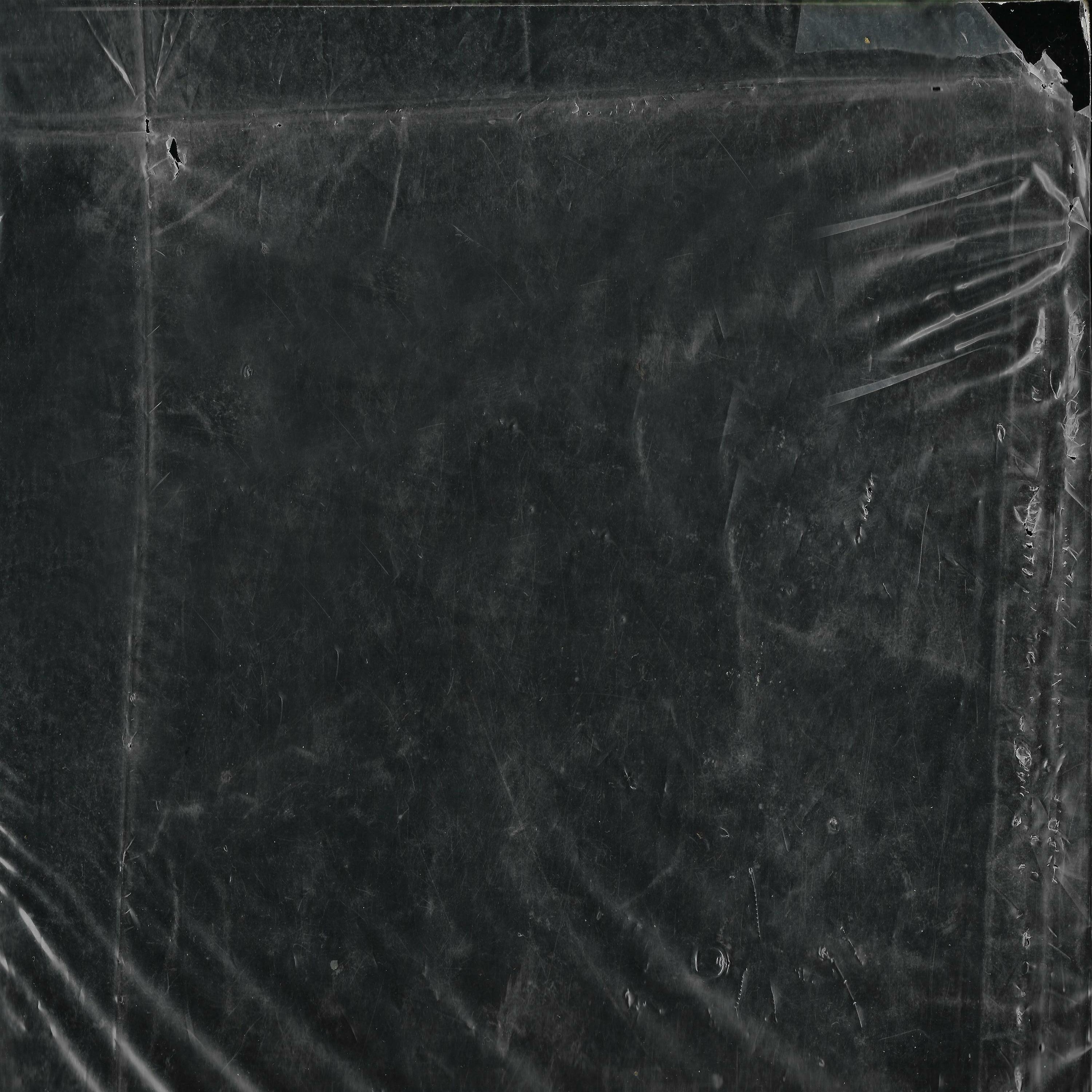
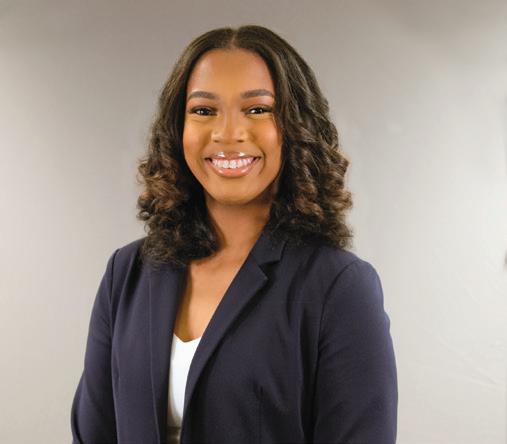

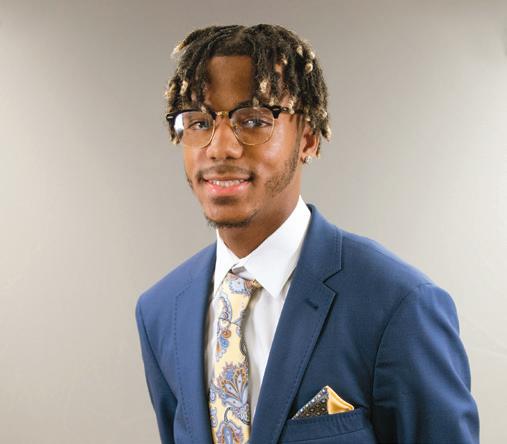

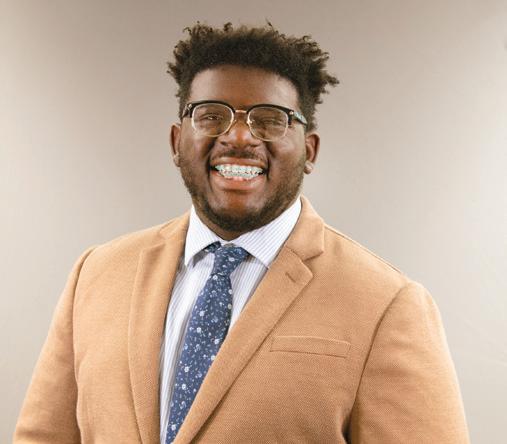




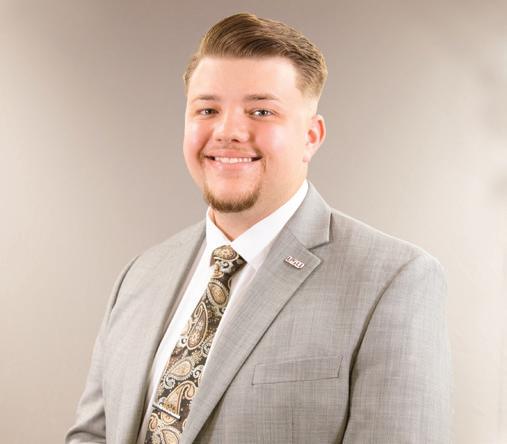

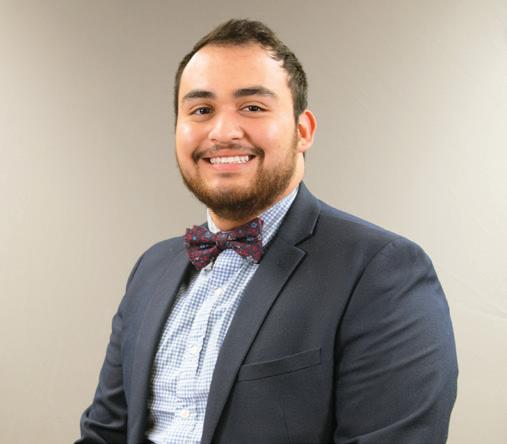
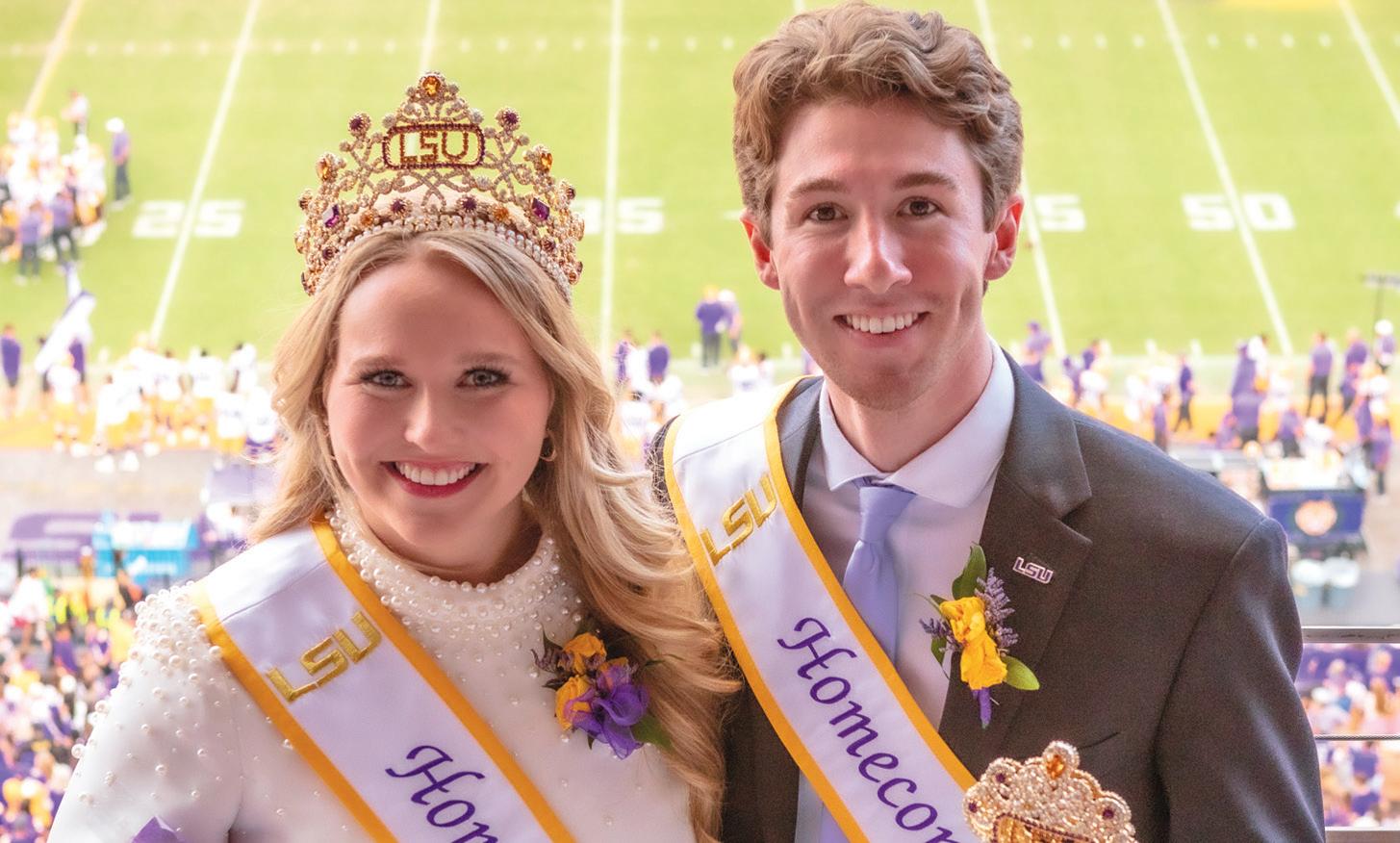






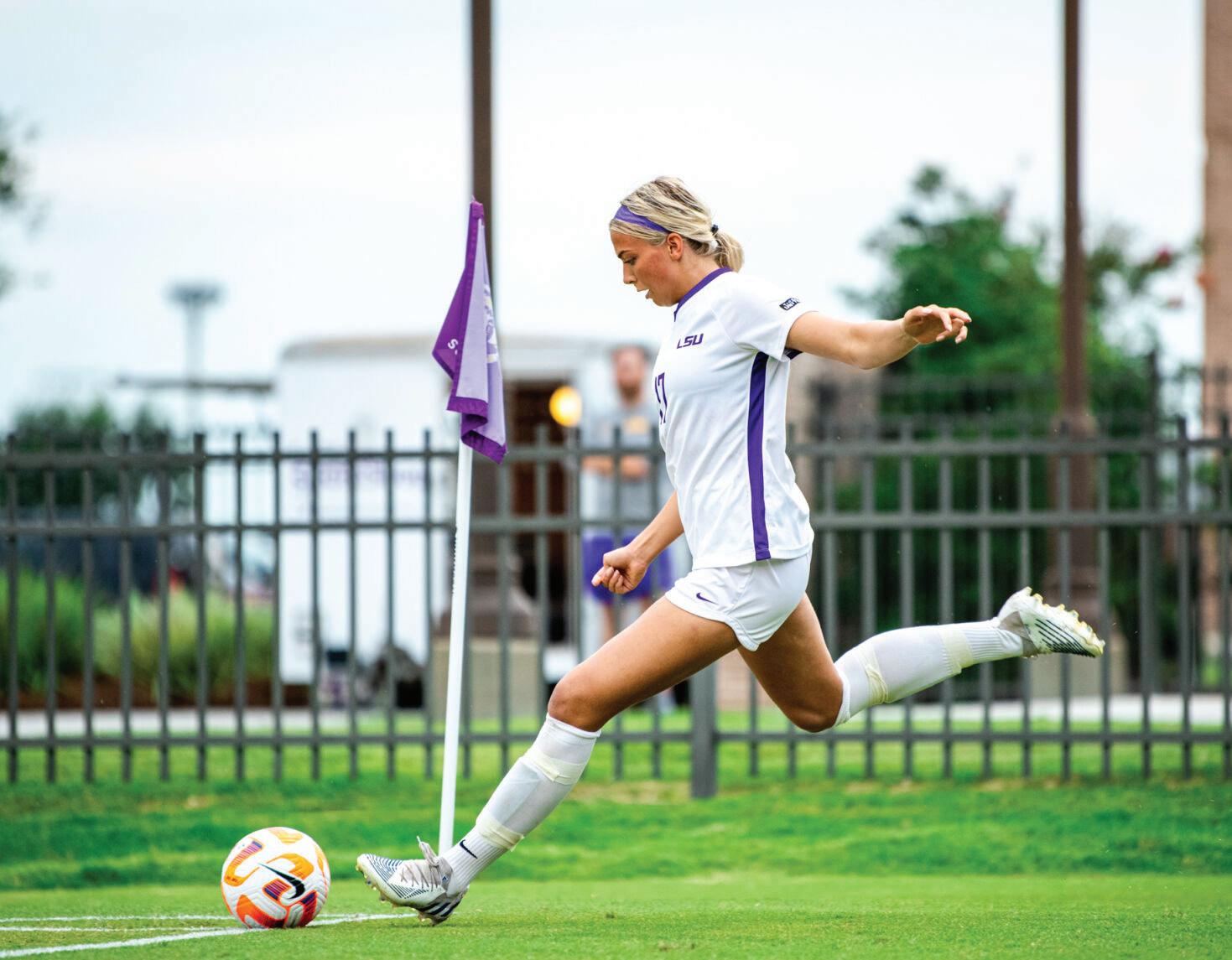 BY GRANT CHACHERE & SPENCER VERRET
@ChachereGrant & @spencerverret
BY GRANT CHACHERE & SPENCER VERRET
@ChachereGrant & @spencerverret
LSU freshman midfielder Ida Hermannsdottir has called Ice land her home since she was 10 years old.
In fact, she barely spoke English after moving to Iceland, even after living in England for the first 10 years of her life. Her actions on a soccer field, howev er, speak louder than any words she could say.
Hermannsdottir leads LSU Soccer in points and goals, re cording 14 points and six goals on the season. Hermannsdottir has two game-winning goals as well, where she led the team to victory against Grambling and Vanderbilt. She also has two as sists on the year.
Before she started competing at LSU, Hermannsdottir played professionally at Valur Reykjavik in Iceland. She made 41 appear ances for Valur Reykjavik and scored 10 goals.
Unlike a lot of college athletes during recruiting, Hermannsdot tir had to get an agent for the re cruiting process.
“I had to get an agent that had lots of contacts in America,’’ Her mannsdottir said. “He contacted Sian (Hudson). Then we spoke about me coming last year, but I didn’t come. Then, we spoke again this year, and it took a bit of convincing. We zoom called, and they showed me the facilities and then I decided to come.”
Hermannsdottir grew up in
Reykjavik, the capital city of Ice land. She is the daughter of two professional footballers.
Her mother, Ragna, captained the Icelandic national team. Her father, Hermann Hreiðarsson, played in the English Premier League for five different clubs
from 1997-2012. Hreiðarsson was a starter on the 2007-08 Ports mouth F.C. team that won the FA Cup, the most highly coveted domestic cup in English football.
“I feel like it’s literally the best scenario,” Hermannsdottir said of having two professional
soccer players as parents. “If I do not like the advice from one of them, I would go to the oth er one. After games, my mom would be a bit more strict. I would ring my dad because he
 JASON WILLIS @JasonWillis4
JASON WILLIS @JasonWillis4
“Act like you’ve been there be fore.”
It’s what’s always said after a field rush takes place. Good luck telling that to the people on the field.
Rushing the field is a stupid and fun tradition that often in volves very little thought on the part of the field rushers. It’s an experience. Your team wins, you release the passion and tenseness you’d been holding all game, and now you get to celebrate what is usually a historical win.
Despite its emotional origin, people try to reduce rushing the field to a science of sorts. They argue about it on a rhetorical ba sis. What exactly makes a game worthy of rushing the field?
People say you have to be the underdog. It has to be a game with significance, one that is de cisive in a national or conference championship race. It should be against a rival. It should come down to the wire. It should occur at your home stadium.
LSU’s game against the Uni versity of Mississippi this past weekend seemed to satisfy most of these requirements. The two
Throughout this season, LSU’s defense, especially the sec ondary, has been uncertain and constantly changing. With play ers adapting to new positions in the secondary, the coaching staff took the 2023 recruiting class as an opportunity to secure more depth to their defense.

LSU has landed three safeties in the 2023 class alone, one of those coming from about a half hour away. That’s Kylin Jackson.
Jackson is a 6-foot-1, 195 pound safety from Zachary High School in Zachary, Louisiana. According to the 247sports Com posite, Jackson is ranked as the No. 12 safety in the country, the No. 10 recruit in Louisiana and the No. 177 overall recruit in the country.
Similar to the other recruits from the greater Baton Rouge
area in LSU’s class, Jackson wanted to stay close to home. He saw LSU as an opportunity to excel at a high level, but also one that wouldn’t be far.
“It’s home. It’s where I need to be,” Jackson said.
Jackson takes great pride in playing in front of his home town, but that isn’t all he wants to do while at LSU. Because many of his family and friends will be able to see him play at Tiger Stadium, he feels the only way to meet expectations is to bring home a national champi onship.
“It feels great, playing for my hometown,” Jackson said. “Winning a national champion ship for my hometown would be great too, though.”
Being from the Baton Rouge area, Jackson has friendships with the other recruits from the area like Shelton Sampson Jr. and Rickie Collins. Jackson played
against Collins’ Woodlawn High team, in which Jackson’s Zach ary team came away with a 33-6 win. Jackson will face Sampson’s team at Catholic High on Thurs day.
Jackson has yet to become close with the recruits who aren’t local.
“I talk to some of [the LSU commits],” Jackson said. “Some of them a little bit, but not all of them.”
However, Jackson wants more recruits from Baton Rouge who are committed to other schools to join him at LSU. One of these recruits is Jordan Matthews, who plays with Collins at Woodlawn High and is committed to Ten nessee.
“We’re trying to switch Jordan Matthews over,” Jackson said.
Regardless, Jackson, who committed to LSU in mid-Au gust, is part of a Top- 10 ranked recruiting class for the Class of
2023, and a class that has landed over 20 commits from 10 differ ent states.
The addition of Jackson not only will add talent to LSU’s ros
ter, but he will also add depth to the secondary come next season. Based on Jackson’s efforts to flip local recruits to LSU, the Tigers may not be finished.
RUSHING, from page 9
schools are rivals as the flagship universities from neighboring states. Ole Miss was ranked No. 7 in the country and undefeated with one of the best offenses in the nation, facing an unranked Tiger team. LSU orchestrated an incredible comeback with a 42-3 run to close the game after a 3-17 deficit. Although it lacked a dra matic ending, the result of the game had national significance. LSU’s win put it firmly back into the race for the SEC West crown and back into the top 25 rank ings.
Some critics point to the fact that LSU was actually favored to win the game by the betting odds, so the field rushing wasn’t really warranted. However, this stance has a narrow definition of an underdog. Sure, the money said LSU would win, but wasn’t the team overcoming something in another sense? The past two years of uninspiring football, of being counted out and a new
coach whose ability and fit with the program has been repeatedly questioned would all say so.
There’s a deeper consider ation than just the quality and circumstances of the game, though: pride.
For some, rushing the field is an admission that you didn’t ex pect to win and that your program is inferior. Alabama and Florida have notably never rushed the field, claiming that winning is simply expected and that it’s em barrassing for a team to celebrate as if winning isn’t typical.
Some made this point in re lation to Ole Miss specifically. Although Ole Miss and LSU are rivals, the Rebels have won only six of the teams’ 23 matchups since 2000 and haven’t won in Death Valley since 2008. Is a home win against Ole Miss really anything out of the ordinary?
LSU fans at least showed a certain awareness of this when they rushed the field. As many people have noted, it was more of a delayed, partial field rush
than an all-out storm. Nothing particularly crazy happened. No goalposts were torn down.
Still, it isn’t practical to as sign reasoning to a decision to rush the field. It isn’t something the fans deeply contemplate. It’s a feeling of the moment, and it’s impossible to break down what circumstances call for such a feel ing.
So why do we seek to make sense out of something that is, by its nature, nonsensical? What is the big deal about rushing the field?
Well, the big deal is the con sequences that come with it. The offending university gets slapped with a huge fine. LSU received a $250,000 penalty following the field rush this past weekend.


The SEC’s policy says, “for the safety of participants and spec tators alike, at no time before, during or after a contest shall spectators be permitted to enter the competition area. It is the responsibility of each member institution to implement proce
dures to ensure compliance with this policy.”
The SEC’s penalties for vio lating the rule escalate from $50,000 for the first field rushing offense, $100,000 for the second, and $250,000 for the third and each after that, given that each successive offense was within five years of the last one. The thinking is that if you’re going to blow $250,000, it better be for a good game.
There’s also always the po tential for a problem whenever fans and the team meet. The players’ and coaches’ safety is at risk when they’re swallowed by a huge crowd of unpredictable fans.
Fans can be a danger to them selves, too. Whenever fans uproot the goalposts, as they often do after rushing the field, bad things can happen. There have been nu merous injuries related to tearing down the goalposts and even a death. It’s certainly important for a fan to be careful even as they’re getting wild.
When Brian Kelly was asked in a press conference about the field rushing after LSU’s win, he seemed to straddle the fence on the issue.
“I didn’t expect it. I was doing an interview, and the state police grabbed me and said, ‘we gotta go,’ and I was like, ‘I didn’t think the interview was that bad.’”
In his answer, Kelly showed a good-natured twinkle of defi ance, while also acknowledging that he wasn’t quite sure the win called for such a celebration. All in all, though, he appreciated the enthusiasm and said he hoped to generate more big wins, more moments worthy of a reaction as visceral as field rushing.
The indifference exhibited by Kelly might be seen as a model for all of us. Who cares when it’s appropriate to rush the field ac cording to some arbitrary stan dard? As long as it’s done safely, we all might be better served to adopt a different attitude toward field rushing.
It’s sports. Get crazy.
SOCCER, from page 9 thinks I’m the best player ever. He would always give me advice that would never be negative. If I played not so great, he would tell me if you are in this position, do this set-up. Tell her you want the ball like this. He would always give me good advice.”
Although Iceland appears to be a quiet country, its passion for this sport is extremely loud. A lot of soccer fans remember fondly of Iceland’s Cinderella run in the 2016 Euro Championships where the team upset England in the round of 16, also known as the “knockout” round. Iceland ad vanced as far as the quarterfinals and beat England.
“I actually went to France to see the games, Hermannsdottir said. “I just didn’t know it was possible. There are only 350,000 people that live there. The whole country went mad. It was liter ally like nothing else. I do not know how to explain it. It just
didn’t seem real. We still speak about it every day.”
Just like her parents, Her mannsdottir ended up getting her chance to suit up for her country. After representing Ice land at the U17 and U19 levels, she finally got called up to the senior national team and made her first appearance on Nov. 30, 2021, coming in as a substitute against Cyprus.
“I was in shock,” Herman sodttir said. “I was at work and everyone was sending me con gratulations, and I did not know what was going on. I looked up the squad, and I knew the squad was being announced that day. There were players on that team playing for amazing teams so I didn’t expect it. I had a really good summer, and I was hop ing that I made the team. When I saw my name I nearly fainted. I had to leave work because I was so overwhelmed.”
Although there is always anxiety when young players get
called up to their national team, Hermannsdottir was ready to work. She wasn’t really fazed at all.
“I knew a couple of girls that were already on the team so it wasn’t that scary,” Hermannsdot tir said. “Just getting to that level had been my dream.”
Hermannsdottir has been a breath of fresh air for this sea sons’ team. The freshman leads the team in goals as well as shots on goal. She’s always wanted to be the one creating or scoring the goals wherever she’s played. Her ability to play as either the striker or a midfielder has been a big boost to Hudson’s side.
Hermannsdottir boasts the ability to pick the ball up in mid field and turn to open up play. Her passing ability then can help her find teammates in great at tacking positions to help drive the ball towards the goal. Her dribbling ability has also been able to spark attacks. The best part of the complete package is
her ability to score goals with powerful shots. Her goal from outside the box against Gram bling is a great example of this power. Hermannsdottir graceful ly received the pass on her right side before using her power to shoot it just outside of the goal keeper’s reach.
“I can score and create goals,” Hermannsdottir said. “I like creating goals because I think it’s fun. It feels built into me to score. I think I am really cre ative, and I’ve got good passes and good shots.”
Hermannsdottir was recently named to the TopDrawerSoccer top-100 freshmen list. She ranks at No. 10 in the country.
Hermannsdottir has scored amazing goals this season just like that long distance strike against Grambling. Her goal of the season, however, was the dip ping free kick that just seemed to glide past Vanderbilt’s defense.
Her fifth goal of the season came when LSU was tied coming
out of halftime against Vander bilt. LSU had won a free kick just outside of the box, and it was in prime shooting position for Hermannsdottir. The way she hit the ball provided so much power and dip. It went up and over the wall, and the opposition goal keeper could only parry it into her own net due to the power of the shot.
Although she had a hard time fitting in at first due to the cul tural and language barriers, Her mannsdottir is really close with her new teammates.
“I’ve never been on a team this connected,” Hermannsdottir said. “I feel like that is because everyone is the same age and go ing through the same things. Ev eryone is different but somehow it works. Everyone is so lovely and wants the same thing, which is to win.”
As long as Hermannsdottir is wearing the purple and gold, the future will be as bright as the northern lights.
According to internations.com, four stages of culture shock exist — the honey period, uncertainty and doubt, adjustment, and adap tation. When traveling to a new country, prepare to feel all of it.
1. Let yourself be a tourist.
Don’t be embarrassed to be enchanted by small details: how fragile the foreign cash feels in your hands, how British teenagers say “prinking” and not “pre-gam ing,” how people drive on the op posite side of the road, how your living space is called an accommo dation and not a dorm, how your roommates are called flatmates, how the mall is called a shopping centre…and even how “center” is spelled “centre” in British Eng lish. Hold on to the grunginess of chicken shops, the fanciness of certain pubs and the unexplain able Britishness of seeing people read newspapers on red doubledecker buses. Some of my favorite
moments were hanging out with my classmates after class, going to the town’s shopping centre, buy ing makeup and dresses and see ing people busking in the streets. Look into free walking tours of the city, meet all of your teachers and advisors, listen to their advice for international students, and ex plore the museums, libraries and art galleries. Let yourself feel the honeymoon period.
2. Be true to yourself.
The international students will clique up. If you are already an introvert, don’t push yourself to be an extrovert all the time. If you are part of the LGBTQIA+ com munity, look for similar communi ties abroad. If you have any niche interests, try to look for people with the same interests abroad. If you don’t like sports, don’t waste your money and energy going to sports games. If you are into things like fashion, music festivals and concerts, spend your time do ing those things instead.
3. Stand up for yourself when people insult your home.
In my experience, people I
met who weren’t from America tended to categorize America in three separate groups — Califor nia, New York and the Bible Belt. Most people I met did not know where Louisiana was, and it made me feel small when people would talk badly about my home.
If you meet someone from an other country and they insult your home, stand up for yourself and realize that it’s not worth it to be friends with that person anyway. It’s worth the work to find people that don’t bring you down within the first conversation of meeting them.
4. Learn the different terminol ogies of countries and islands.
Different terminologies used abroad overwhelmed me at first. What helped me to become less overwhelmed was to learn the basic geography of where I was — “The British Isles” refers to the islands that are off the north western coast of Europe, accord ing toBritannica. Within these islands, you have Great Britain and Ireland, the two largest is lands. Great Britain is broken up into three countries — Scotland,
England and Wales. Ireland is bro ken up into two countries — the Republic of Ireland and Northern Ireland. The United Kingdom is a sovereign country that comprises Scotland, England, Wales, North ern Ireland and smaller islands within the British Isles.
5. Keep a journal. Write in a journal and record
your thoughts and feelings. Keep this journal with you, and keep it as important to you as your pass port. And speaking of passports, make sure you don’t lose yours. Your passport is extremely impor tant.
Kathryn Craddock is a 22-yearold mass communication senior from Patterson.



Whether you’re an artist or not, almost everyone has seen splatter art before. But I bet you’ve never seen environmen tal activists splatter soup over a Vincent Van Gogh painting until recently.
Two environmental activists, Anna Holland and Phoebe Plum mer of Just Stop Oil, threw soup on Van Gogh’s “Sunflowers” and glued their hands to the wall where the painting hangs on Oct. 14.
According to the Shore News Network, the protest was in re sponse to Britain’s current fossil fuel dilemma involving the coun try halting fuel production in the North Sea, forcing Britain to rely on imported fuel.

The average U.K. household uses 12,000 kilowatts of gas every year, according to Energy Guide. At the beginning of October, the average energy bill was predicted to increase by 80% due to gaso
line prices. That staggering in crease puts families’ energy bills at over £3,000 per year.
Meanwhile, in the United States, the average gas bill per month is a little more than $100 and sometimes less depending on the state, according to Inspire Clean Energy. Most Americans pay $1,200 per year for their en ergy bills.
So, one can sympathize with the activists’ statements of fami lies not being able to put food on the table. Pandemic-driven cost increases have left many house holds around the world struggling to pay for gasoline and electricity.
Nevertheless, it’s utterly ridic ulous that the activists took a can of soup and threw it on a mas terpiece such as “Sunflowers” to make their point. If they wanted attention, they certainly got it. But I don’t think any protestor needs to go to the lengths of potentially destroying a priceless painting to make a point.
I’m not sure why protestors think that destroying or threaten ing property results in support for a cause. It’s honestly idiotic that I have to write the above state
ments to show how stupid it is to tear something down to build up your activist portfolio of what you think is an innocent protest.
Luckily, the painting was per fectly restored. CTV News men tioned that Holland and Plummer chose the painting because of Van Gogh’s own economic struggles, and how climate change may heavily affect impoverished citi zens.
But for people who care so much about the beauty of the en vironment, you think they would care about the beauty and restora tion of artwork that may capture naturalistic elements of the world. But I guess I was wrong to make that assumption. My mistake.
If activists truly wanted peo ple to support their protests, then perhaps don’t tamper with prop erty or burn down and loot busi nesses. In the summer of 2020 in Minneapolis, businesses includ ing Target and AutoZone were looted and fires were set amid protests, according to reporting by NBC News.
It’s one thing to hold up signs and peacefully advocate for a cause because everyone should
be able to stand up for what they believe in. However, I have a problem with tearing down busi nesses, both large and small, and destroying public and private property just to rest your case. The results of those illegal activi ties can lead to higher crime rates, more division among all sides of the political spectrum and more
unneeded destruction.
In essence, let’s save the splat ter paint for real artists, not for activists who are trying to “make a point” by potentially demolish ing magnificent artworks.
Taylor Hamilton is an 18-year-old mass communication freshman from Tallahassee, Florida.
The Reveille (USPS 145-800) is written, edited and produced solely by students of Louisiana State University. The Reveille is an independent entity of the Office of Student Media within the Manship School of Mass Commu nication. Signed opinions are those of the author and do not necessarily represent the views of the editor, The Reveille or the university. Letters submitted for publication should be sent via e-mail to editor@lsu.edu or deliv ered to B-39 Hodges Hall. They must be 400 words or less. Letters must provide a contact phone number for ver ification purposes, which will not be printed. The Reveille reserves the right to edit letters and guest columns for space consideration while preserving the original intent. The Reveille also reserves the right to reject any letter without notification of the author. Writers must include their full names and phone numbers. The Reveille’s edi tor in chief, hired every semester by the LSU Student Media Board, has final authority on all editorial decisions.
“Humanity is a parade of fools, and I am at the front of it, twirling a baton.”
Dean Koontz American author 1945 — presentbut have never received significant pushback from your undergrads.
Everyone’s had that one pro fessor: the one who makes your life miserable, grades too hard, is confusing and passive aggressive. They probably teach the “weed out” class, the one that every new freshman or sophomore in your major has to take. You probably didn’t get the grade you wanted. You were probably mad, and you probably gave him a bad review.
Then, you move on. You for get about the class, assuming you passed, and your frustration with it.
Imagine, a few months later, you find out “that” professor, the cause of last semester’s weekly allnighters, has been fired.
You’re elated. You’re vindicat ed. Justice is served.
Now, let’s flip the script: You’re a professor, tenured and decorat ed. You’ve spent years designing a comprehensive course designed to prepare students for the challeng es of your field. You’ve had some complaints, a few bad reviews,
Then, COVID-19 hits. You’re forced to teach online, complete ly upending and redefining your education style. Students struggle. They get lower grades than any other class you’ve taught. The trend continues when in-person classes resume. The test scores and grades get worse and worse.
Then, you’re called into your department chair’s office to be in formed that your contract isn’t be ing renewed. Despite your years of service, accolades and teaching awards, you’re effectively being fired.
This teacher and these students aren’t hypothetical. It’s the story of Maitland Jones Jr., a professor emeritus at New York University who was fired last spring after 83 of 250 students in his introductory organic chemistry class signed a petition against him, according to the New York Times.
Students complained that the class was too hard and that Jones’ standards were too high.
Jones disagreed. He had been keeping the same performance standards for years, although, ad mittedly, he had noticed a drop off
in work quality since the beginning of the pandemic. Not only did stu dents suddenly seem to forget how to read exam questions, but they also seemed to forget how to study and regularly attend class. This trend continued, even after in-per son classes resumed in spring 2021.
Despite protests from Jones, his colleagues and former students, the university informed him that they wouldn’t be renewing his contract for the following semester. His long career was basically over, just like that.
Jones’ story is an interesting one, especially when extrapolated to other universities, where stu dents across the country have re ported a significant spike in learn ing troubles since the pandemic’s start.
According to a OneClass survey of over 14,000 students, 85% felt that pandemic learning conditions negatively affected their academic performance. Only 5% felt that they helped, while 9% reported no ef fect at all.
This decline in learning has been noticeable in my own classes that I’ve taught and graded. There’s been, with every successive semes ter since the pandemic started, a
considerable downward trend in work quality, across both papers and tests.
There’s also been a spike in negative feedback from students, who don’t seem to understand the intricacies of paper writing or how to study. I’ve noticed some of the same problems identified by Jones: poor reading skills, significant downturns in class attendance, and worsening writing and communica tion.
What’s the reason? Outside of general qualitative advice and statements, it’s difficult to pinpoint exactly what’s been going on or what to do about it.
Certainly, COVID-19 has played the largest – and perhaps the only – role in this negative educational trend. The time lost, at all lev els of education, by forced online “learning” has changed student expectations of what constitutes fair grading and good classroom instruction.
Thus, instructors and profes sors can’t reasonably expect fresh men and sophomores to know how to study, ask questions and communicate properly with them, given that they’ve had such little person-to-person contact over the
past few years.
But that doesn’t mean that young underclassmen should get a pass for skipping class, feeling enti tled or turning in bad work. In fact, it probably means the opposite: The best way for students to catch up quickly to what should be rigor ous college standards is to enforce strict expectations and only com promise on a case-by-case basis.
Students shouldn’t be able to get away with unwarranted, out landish or unsubstantiated com plaints to a professor or instructor’s higher ups. They need to know that class attendance is necessary if they want to learn, and Quizlet doesn’t count.
Everyone involved in this co nundrum – students, faculty and school administration – should rec ognize that new students are be hind the curve and that they may need some additional help, espe cially after COVID-19 stunted their study habits and grades. College is hard enough as it is for everyone involved. We shouldn’t be making it worse.
Benjamin Haines is a 24-yearold history graduate student from Shreveport.
Is Brian Kelly’s $95 million contract worth it? One might think that it’s not, especially after early October’s 40-13 spanking against Tennessee.
Questions surrounding LSU’s spending habits in the athletics de partment have been on the minds and Twitter accounts of some LSU faculty and students for a while, at least since the university decided to spend $28 million dollars renovat ing its football and operations cen ter in summer 2019. The school’s priorities seem out of whack, so the thought goes, if it’s spending tens of millions of dollars on sports while key academic buildings like the library are under daily threat of water and flood damage.
But LSU’s football spending habits are much more complicated than they may initially seem. The success of the university’s various sports teams has immediate ef fects on university enrollment and even on local and state economies. What’s more, LSU football in par ticular is an enormous cash grab for the university, which is the only Southeastern Conference school to bring in more money in sports do nations than academic ones.
According to a 2018 report by The Advocate, the LSU football program gross revenue was a jawdropping $86 million; its profit was $56 million.
Compare this to men’s basket ball, which profited roughly $1.6 million, or to baseball, which prof ited a comparatively small amount of approximately $569,000 in the
same year. All other sports teams – gymnastics, softball, women’s basketball, track and field – were in the red.
A winning football team also has a positive effect on enrollment. This is known as the “Flutie Effect.”
In 1984, Boston College quarter back Doug Flutie threw a lastsecond touchdown pass to miracu lously win against the University of Miami. Just two years later, appli cations to Boston College jumped by 30%, making the school a prime destination for students looking for a classic “college experience.”
This phenomenon has been well documented in students and articles since then. In 2007, some community colleges started invest ing in new sports programs to at tract new students, according to the Chronicle of Higher Education. Such attempts had a positive im pact on student morale and enroll ment.
In a 2012 American Freshman National Norms survey, UCLA re searchers found that, along with college affordability and job pros pects post-college, about 40% of new students indicated that social life was a key concern when decid ing which school to attend.
At LSU, the football program has its own social gravitational pull, taking over the entire campus on game days, bringing in students and fans from across the state and beyond.
Outside of the immediate con text of the university, the football program also has positive effects on the entire city of Baton Rouge. According to 2020 reporting from The Reveille, Loren Scott, a former chairman of LSU’s Department of Economics, estimated that LSU fans from outside of Baton Rouge spent
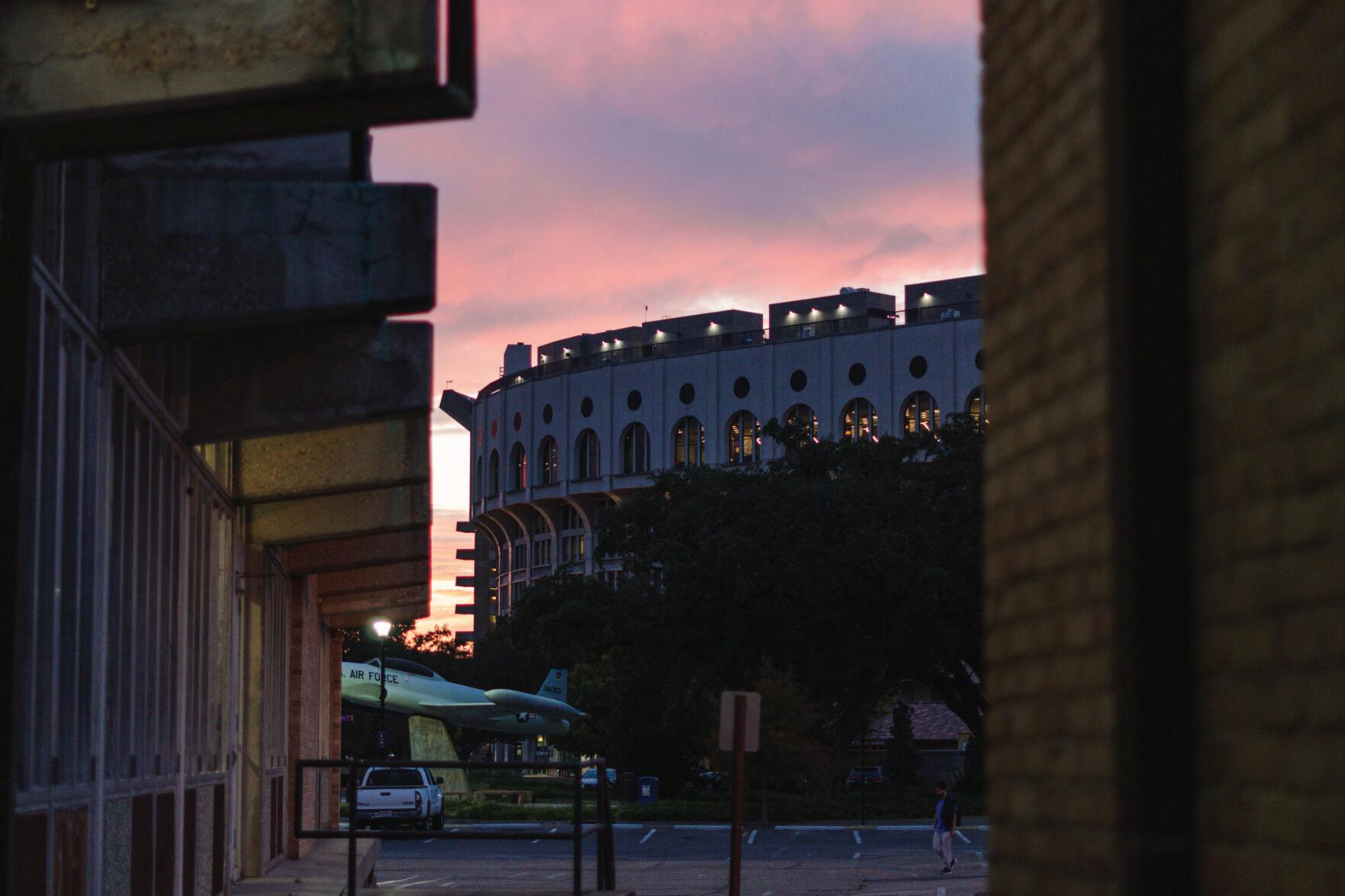
a collective $27.4 million around the city during the 2001 season. In an updated 2013 survey, he found that that figure had spiked to $47.7 million.
Scott also estimated that, across all LSU athletics programs, $397.5 million in sales were generated, as well as $119.7 million in household earnings and almost 4,000 jobs.
And in its 2019 national cham pionship winning season, LSU football brought in $92 million in revenue, including $36.3 million in ticket sales, bringing its annual profit to $56.6 million.
These figures suggest that a winning football program is good for all of LSU, not just the athletics department or Brian Kelly. It brings in money for just about everyone –including businesses across the Ba ton Rouge community.
This doesn’t mean that LSU has its priorities straight all the time. Certainly, it’s frustrating for faculty, graduate and undergradu ate students alike to have to walk into a decrepit library every day; in fact, it borders on embarrassment. It’s also frustrating when we have an immense backlog of deferred maintenance in buildings across campus, which is similarly harmful to campus morale.
But the reality is that a lot of these problems have little to do with the athletics department in general or the football program and Kelly in particular. Instead, the problems lie in the backwards bureaucratic monstrosity that is the Tiger Athletics Foundation and the Louisiana legislature.
The Tiger Athletics Foundation, for instance, isn’t allowed to share funds with the separate LSU Foun dation, which is responsible for managing academic donations. In
stead, TAF is only allowed to pro vide its collected funds to the Ath letics Department alone, a policy enforced by current athletic direc tor Scott Woodward.
Perhaps this policy makes sense on paper, but its utility runs out when, as pointed out in a 2021 column in The Reveille, TAF began to use its money to subsidize the lawsuits against the university over the Title IX violations brought up under former football head coach Ed Orgeron.
Similarly, the state legislature is responsible for determining the budget for essentials like deferred maintenance – which, again, is fine when done reasonably. But currently, it only provides a $2-3 million annual budget for such re pairs, a measly sum in the face of its $604 million total.
As things stand now, though, with the often head-scratching pol icy, it’s best to give Kelly a bit more
time to demonstrate his worth. If LSU keeps suffering blowouts like it did against Tennessee, the worth of Kelly’s role and salary should be reevaluated. At that point, members of the LSU community will have a better understanding of his effect on student morale and enrollment. One thing that would undoubt edly help, though, is for Kelly to reprioritize his donation habits. In stead of giving $1 million to further update the state-of-the-art athletics facilities, perhaps he could give a bit to help fix the library or oth er buildings – a financial gift like that would undoubtedly boost his clout among the people who make up the heart and soul of LSU: not its administrators or its athletics coaches, but its teachers and stu dents.
Benjamin Haines is a 24-yearold history graduate student from Shreveport.

